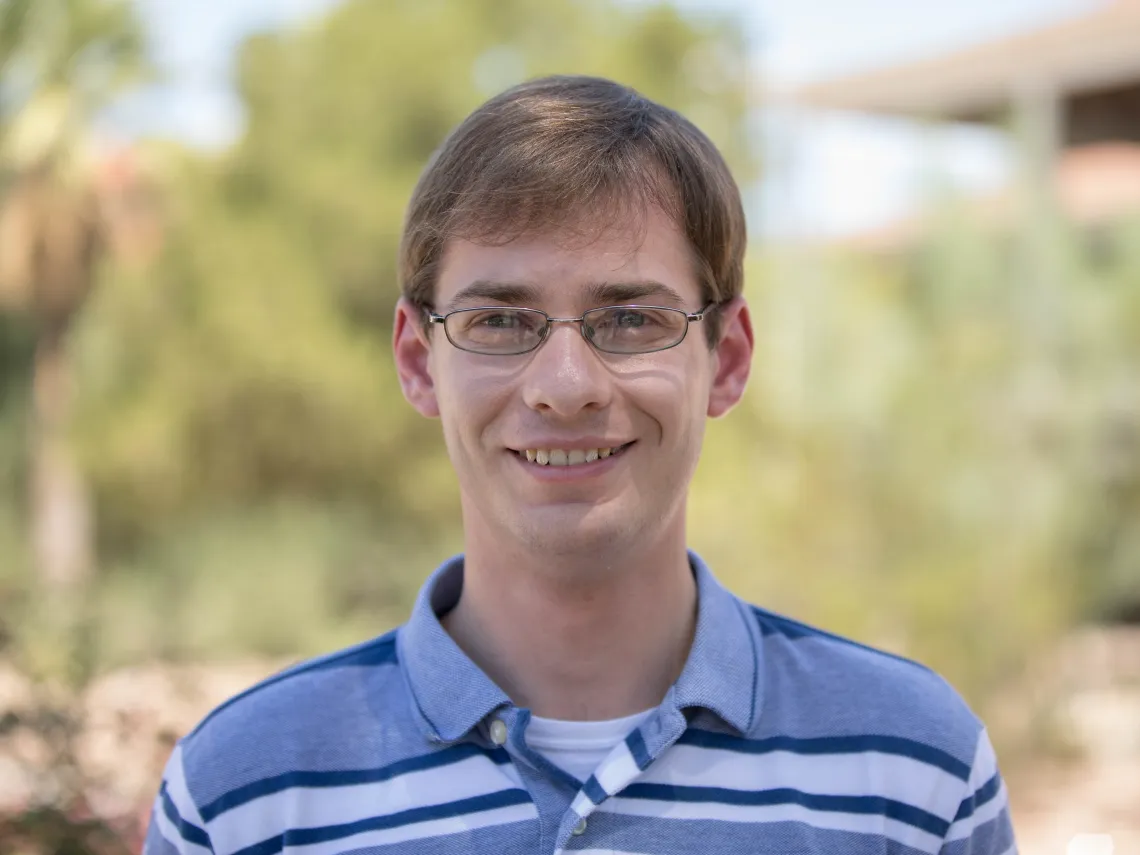Graduate Student Andrew Wickersham Recognized for Creativity in Teaching History

Andrew Wickersham
Andrew Wickersham, a doctoral student in the Department of History, received the SBS Outstanding Graduate Teaching Award, which recognizes superior and innovative work by a graduate teaching assistant or associate.
“Helping young people develop critical thinking skills and mature in their understanding of the world is at the heart of what we do as an institution,” Wickersham said. “And seeing students succeed at these challenges is what makes teaching so rewarding. I am deeply honored to receive an award that celebrates the vital contributions that all graduate teaching assistants are making at the University of Arizona.”
Wickersham, who received his master’s from the University of Chicago in Middle East Studies, has been a TA for a range of courses at the University of Arizona, including HIST 160B2 World History to 1600, HIST 150C4 World History 1600-Present, HIST 311 History of Epidemics, and HIST 160D2 Food and Power in Global History.
But it was his work as a TA for the in-person lecture course, History 160B1 – History of Western Civilization, this past fall for which he was nominated.
“Among the many graduate students who have served as my teaching assistant over the past twenty years at three separate institutions, Andrew is second to none,” wrote John R. Senseney, associate professor in the Department of History, who nominated Andrew for the award.
Senseney said that Wickersham helped “reshape the course according to highly creative ways of meeting pedagogical goals,” which includes teaching writing skills by having students create podcasts.
Wickersham reached out to CATalyst Studios in the University Libraries to connect students with studio recording equipment to reimagine the writing process by having students create scripted history podcasts.
“The prospect of publishing podcasts publicly available on popular platforms world-wide motivated students,” Senseney said. “This innovation enabled students to write by scripting, and the recording and editing of the podcasts awakened in students the connection between spoken and written expression. The results were exciting, with students cultivating an enthusiasm for writing along with personal pride in creating engaging historical inquiries for public engagement.”
Senseney added, “Thanks to Andrew’s efforts, I can say with certainty that, at a level well beyond previous years of teaching this course, our students learned what the discipline of history is and what historians do.”

